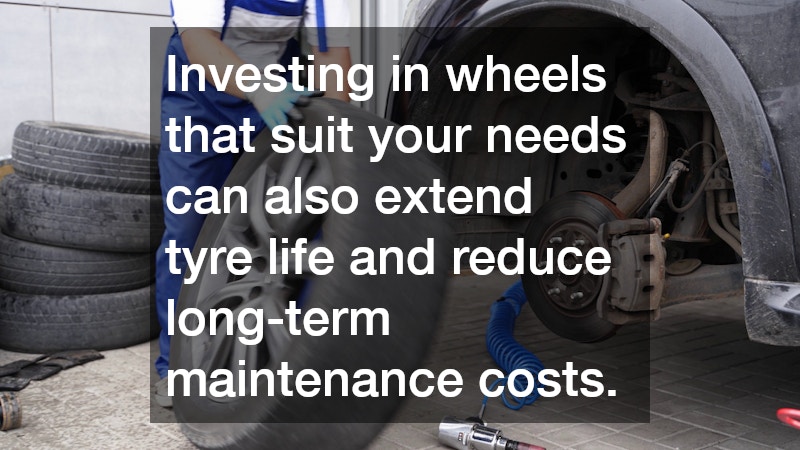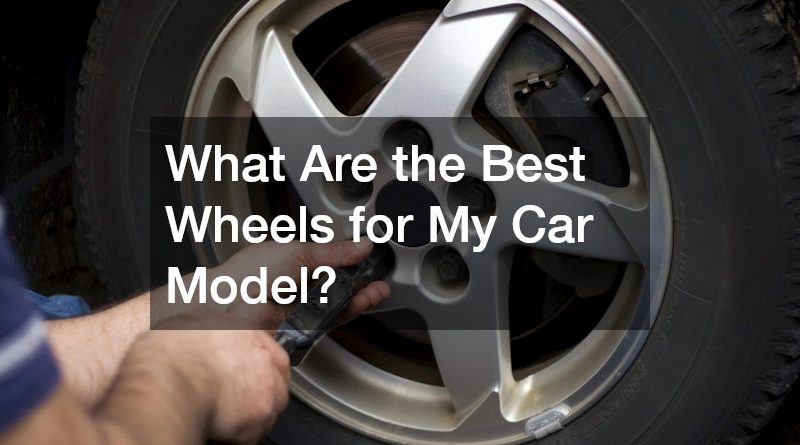What Are the Best Wheels for My Car Model?
Choosing the right wheels for your car model involves more than just picking a style that looks good. The best option balances aesthetics, performance and safety.
Whether you’re upgrading for performance or replacing damaged wheels, understanding what fits your vehicle best is essential to maintaining driving efficiency and comfort.
Different car models have specific requirements for wheels based on weight, size, offset and intended use. Choosing incorrectly can lead to issues with handling, braking and even vehicle clearance. Let’s explore what you need to consider when selecting the best wheels for your car model.
Understand Your Car’s OEM Specifications
OEM (Original Equipment Manufacturer) specifications refer to the wheels your vehicle was originally designed to use. These include diameter and width, which determine how the wheel fits the tyre and wheel well; bolt pattern, which is the number and layout of the wheel’s bolt holes; and offset, which affects how far the wheel sits in or out from the hub.
Adhering to OEM specs ensures your wheels align with the manufacturer’s design for optimal safety, handling and performance. It helps avoid issues like tyre rubbing, poor alignment or stress on suspension parts. These details are typically listed in your vehicle’s manual or inside the driver’s door.
Alloy vs Steel Wheels: What’s the Difference?
The two most common types of wheels are alloy and steel, each with its pros and cons.
Alloy Wheels
Made from a mix of aluminium and other metals, alloy wheels are lighter and often more stylish than steel. They improve handling, reduce strain on suspension and contribute to better fuel economy. They also dissipate heat well, which is beneficial for braking performance.
However, alloy wheels can be more prone to cosmetic damage such as scratches or dents from kerbs. They’re also typically more expensive.
Steel Wheels
These are heavier and more durable, often preferred for work vehicles or those driven in rough conditions. Steel wheels are more affordable and can handle heavier loads but may compromise on appearance and performance compared to alloy.
For most passenger vehicles, alloy wheels are a popular upgrade due to their blend of function and form. However, if durability and cost are your top priorities, steel may be a better choice.
Consider Your Driving Conditions
Where and how you drive plays a big role in determining which wheels are best suited to your needs. Urban drivers might prefer lighter alloy wheels for better handling and improved fuel efficiency, while off-road enthusiasts should consider more robust options that can withstand rough terrain and frequent impact. For those focused on performance, lightweight forged alloy wheels can help reduce unsprung weight and enhance both acceleration and braking. Climate is another important factor — in areas with harsh weather, corrosion resistance becomes crucial. Alloy wheels often come coated for rust protection, whereas steel wheels may be better suited to winter conditions, especially where road salt is common.
Professional Fitment and Advice
Wheels must be installed correctly to ensure safety and performance. An improper fit can cause vibration, uneven tyre wear or even damage to the suspension.
Visit a reputable shop or dealership that can use proper balancing and alignment tools. Many retailers also offer test fit services, allowing you to see how a set of wheels will look and perform on your specific car model before purchasing.
It’s also worth checking whether the new wheels affect your vehicle warranty or insurance. Some modifications may not be covered, so confirm before making the switch.
Final Thoughts
Selecting the right wheels for your car model comes down to more than just looks. You need to consider size, material, fitment and how you intend to use your vehicle. Alloy and steel both offer unique benefits, and your choice should reflect your lifestyle, driving habits and budget.
For example, alloy wheels are generally lighter and more stylish, offering better handling and fuel economy. Steel wheels, on the other hand, are typically more affordable and durable, making them ideal for heavy use or harsh weather conditions. Your local environment — whether you’re dealing with smooth city roads or rugged country tracks — also plays a key role in your selection.
Consult your car’s specifications and speak to a wheel professional before making any decisions. With the right choice, you’ll not only enhance the look of your car but also improve how it drives and performs in everyday conditions. Investing in wheels that suit your needs can also extend tyre life, reduce long-term maintenance costs and contribute to a safer, more comfortable ride.

